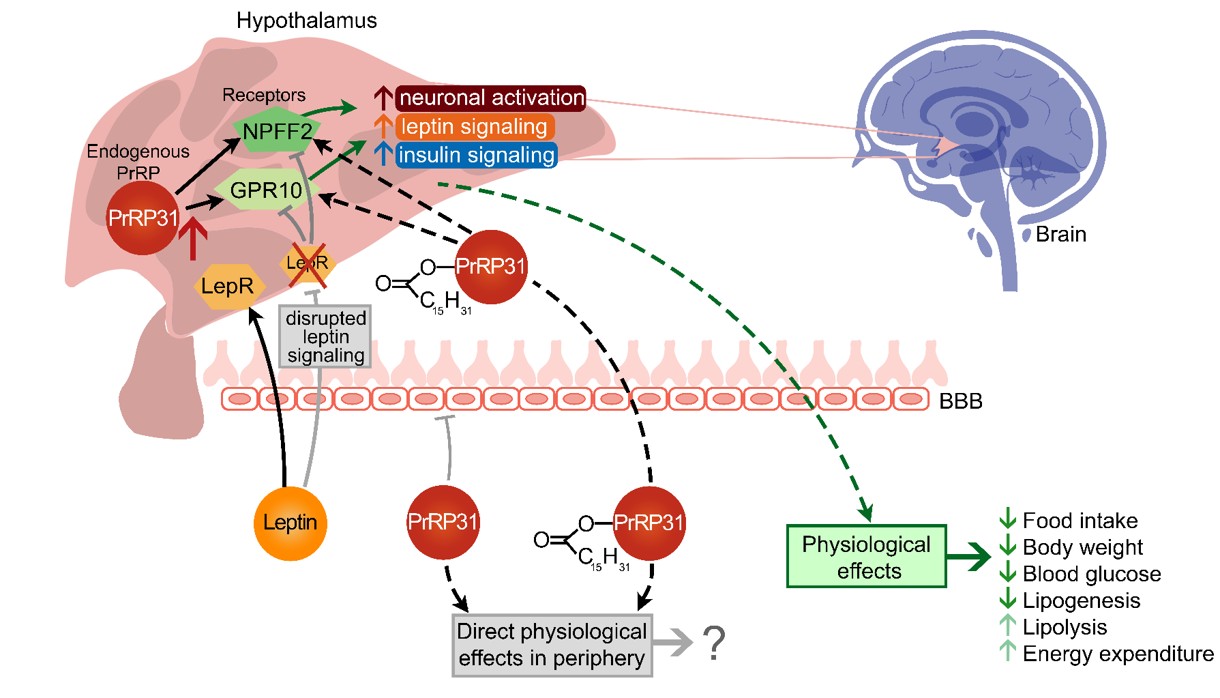
Obesity is a major public health problem worldwide resulting usually from an unhealthy lifestyle- But genetic susceptibility can also play a role. It is a major risk factor for insulin resistance (IR) that can result in type 2 diabetes mellitus (T2DM), associated with abnormal insulin secretion and chronic high blood sugar levels.
Among other things, scientists led by Lenka Maletínská from IOCB Prague focus on the prolactin-releasing peptide (PrRP) which is a natural anorexigenic neuropeptide causing loss of appetite and has a potential for the treatment of obesity and its complications. In a recent study, they designed and prepared a PrRP31 analog bearing a long fatty acid chain palmitoyl (palm11-PrRP31). After peripheral administration, this more stable analog can act centrally as an anti-obesity and glucose-lowering agent.
In collaboration with colleagues from the Institute of Physiology and the Institute of Microbiology the researchers followed features of obesity, glucose intolerance, but also prediabetes, liver steatosis – fatty liver disease, and insulin resistance-related changes, as well as neuroinflammation in the brain of rats with a 52-weeks at high-fat diet. The rats developed obesity that was significantly decreased by the treatment of both palm11-PrRP31 and liraglutide as a comparator. In parallel, they showed robust glucose intolerance attenuated by palm11-PrRP31, but not by liraglutide intervention.
Strengthened by other metabolomics and lipidomics data, this study suggests multiple beneficial anti-obesity-related effects of palm11-PrRP31 and liraglutide in both the periphery and brain.
Read the paper: Mráziková, L.; Hojná, S.; Vaculová, P.; Strnad, Š.; Vrkoslav, V.; Pelantová, H.; Kuzma, M.; Železná, B.; Kuneš, J.; Maletínská, L. Lipidized PrRP Analog Exhibits Strong Anti-Obesity and Antidiabetic Properties in Old WKY Rats with Obesity and Glucose Intolerance. Nutrients 2023, 15(2), 280. https://doi.org/10.3390/nu15020280





